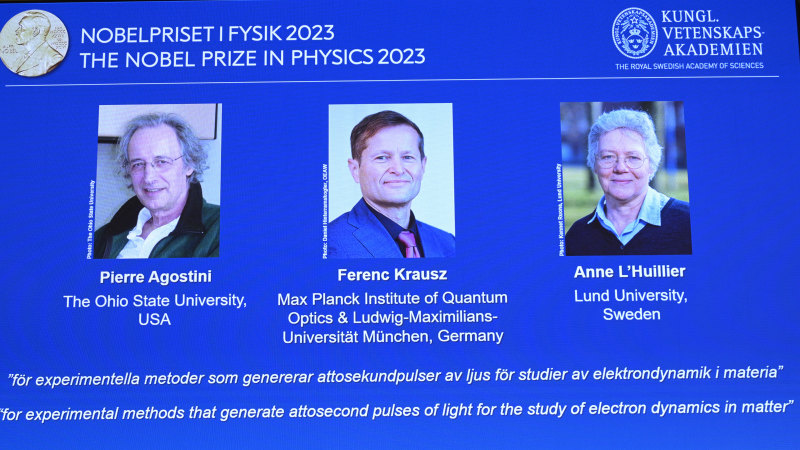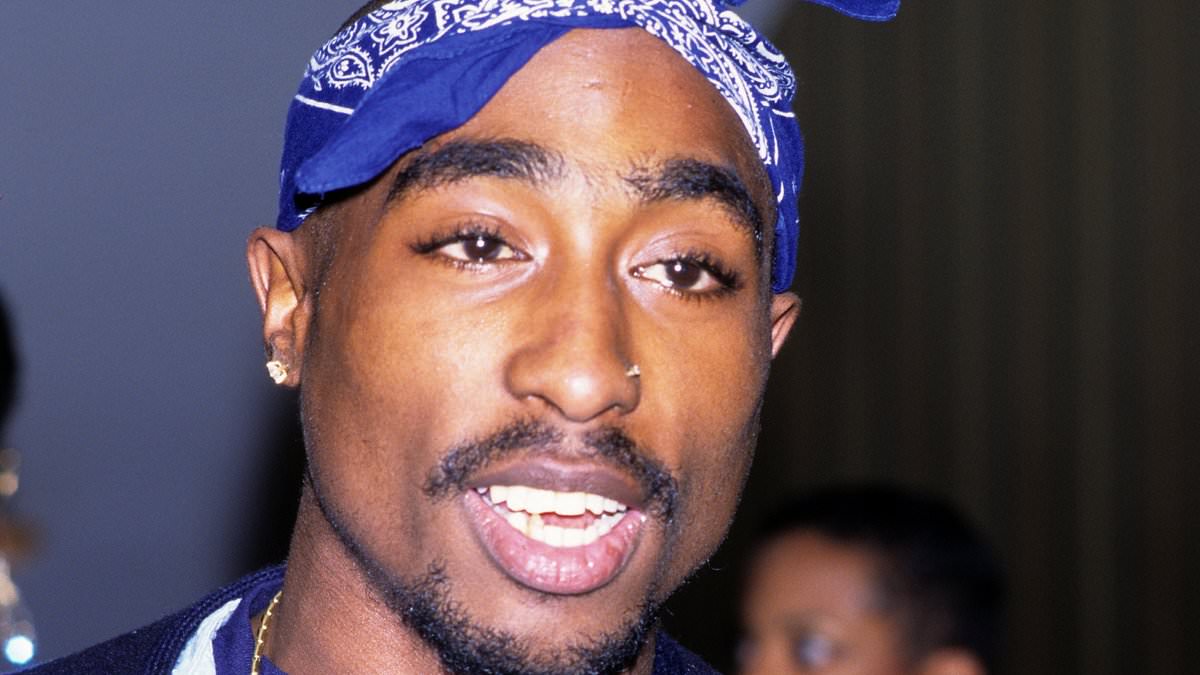Save articles for later
Add articles to your saved list and come back to them any time.
Stockholm: The 2023 Nobel Prize in Physics was awarded on Tuesday to three scientists who look at electrons in atoms during the tiniest of split seconds.
Scientists Pierre Agostini, Ferenc Krausz and Anne L’Huillier won the 2023 Nobel Prize in Physics for “experimental methods that generate attosecond pulses of light for the study of electron dynamics in matter”, the award-giving body said.
The permanent secretary of Sweden’s Royal Academy of Sciences, Hans Ellegren (centre), and members Mats Larsson (left) and Eva Olsson, announce the winners of the 2023 Nobel Prize in Physics.Credit: AP
Their experiments “have given humanity new tools for exploring the world of electrons inside atoms and molecules,” according to the Royal Swedish Academy of Sciences, which announced the prize in Stockholm.
They “have demonstrated a way to create extremely short pulses of light that can be used to measure the rapid processes in which electrons move or change energy,” it said.
At the moment, this science is about understanding our universe rather than practical applications, but the hope is that it will eventually lead to better electronics and disease diagnosis.
“Attosecond science allows us to address fundamental questions such as the time scale of the photoelectric effect for which Einstein, Albert Einstein, received the Nobel Prize in Physics in 1921,” Eva Olsson, chair of the Nobel Committee for Physics, said.
The prize, which was raised this year to 11 million Swedish crowns (about $1.56 million), is awarded by the Royal Swedish Academy of Sciences.
Last year, three scientists jointly won the physics prize for proving that tiny particles could retain a connection with each other even when separated. The phenomenon was once doubted but is now being explored for potential real-world applications such as encrypting information.
Physics is the second Nobel to be awarded this week after Hungarian scientist Katalin Kariko and US colleague Drew Weissman won the medicine prize for making mRNA molecule discoveries that paved the way for COVID-19 vaccines.
Created in the will of dynamite inventor and businessman Alfred Nobel, the prizes for achievements in science, literature and peace have been awarded since 1901 with a few interruptions, becoming arguably the highest honour for scientists everywhere.
While the sometimes controversial award for peace can hog the limelight, the physics prize has likewise often taken centre stage with winners such as Albert Einstein and awards for science that has fundamentally changed how we see the world.
Last year, Alain Aspect, John Clauser and Anton Zeilinger won the prize for work on quantum entanglement, where two particles are linked regardless of the space between them, something that unsettled Einstein himself who once referred to it as “spooky action at a distance”.
Reuters, AP
Liam Mannix’s Examine newsletter explains and analyses science with a rigorous focus on the evidence. Sign up to get it each week.
Most Viewed in World
From our partners
Source: Read Full Article



